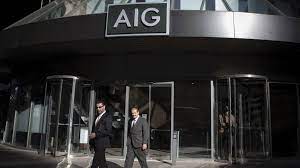1. Preparing for the interview
Mandatory part for a successful interview
Many neglect this block but in vain. According to Zhanara Izimova, the executive of the largest Kazakhstani and international companies with 20 years of experience, Techwomen, the founder of the First Career School, it is the preparation for the interview that makes 50% of the applicant’s success
Preparation consists of several types of information:
- Get information about the company. This way you will feel confident and know what to expect during the interview. You should be prepared: examine employer’s website and social networks, if any
- Get information about the position (vacancy). You need to know the requirements in order to prepare your successful cases. Check the key responsibilities to understand the expectations from the future employee. Try this role on yourself, so you will understand how it suits you and what cases about yourself it would be better to present.
- Prepare information about yourself. Rehearse the presentation, get prepared to answer questions, work out questions about the company and your specific role in advance
2. Interview
- Self-presentation
Presentation of your professional experience and achievements
This is your fifteen minutes of fame! You are asked questions and are welcome to talk about yourself. You present professional experience, competencies (hard skills) and achievements
- Your answers to interviewer questions
Conversation with the interviewer about your experience, skills and competencies
Recruiters evaluate the following two groups of skills:
A. Interview on hard skills: they look at your technical expertise, professional skills, and knowledge of your industry
B. Behavioral interview: they study everything that concerns and reveals your personality
Therefore, write down suitable personal qualities for the position you are applying for and think over your motivation to join the team
- Presentation of the candidate
Discussion of your questions about the company and your specific role in it
Many people neglect this step. And those who are more aware simply have no idea what questions to ask when this tricky inquiry “Do you have any questions?” is made.
It is simple! Here you necessarily discuss your questions about the company and your specific role in it. These questions reveal your motivation and interest. It is better to prepare questions in advance.
Photos are from open sources.
3. Thank you letter
Your reflection on the conversation with the interviewer or a simple thank you letter format
You write Thank you letter after the interview. It is important to thank the interviewer for the time they spent on you. Your note does not have to be long, but it will leave a fond memory of you as a candidate.
However, it is critical to realize that the interview is only a small part of your career path. It is important to understand why you need this particular position, whether it is suitable for you personally or you are there only because of the money. Or perhaps, you underestimate yourself, that is exactly the case. Secondly, not everything ends with the interview, you need to go through a probationary period. After all, everyone will be carefully watching you all this time. What’s to be done?
It is important to treat your career as a full-fledged business project. For this you should:
1. Know your career strategy. What is it you want? You need to understand your career goal. Do you have it?
2. Select reliable job search channels and act according to a specific algorithm for selecting vacancies. Headhunter site is not enough. Highly paid positions are announced in narrow circles
3. Competently present yourself as a candidate (resume, social network profiles and not only). Check your resume. How attractive is it?
4. The interview stage comes only after that. You already know what to do;)
5. Tighten your grip, complete a probation period and become the company’s star. Do you easily fit into a new team?
Source: https://prodengi.kz/post/kak-uspesno-proiti-sobesedovanie-na-rabotu
Photos are from open sources.





